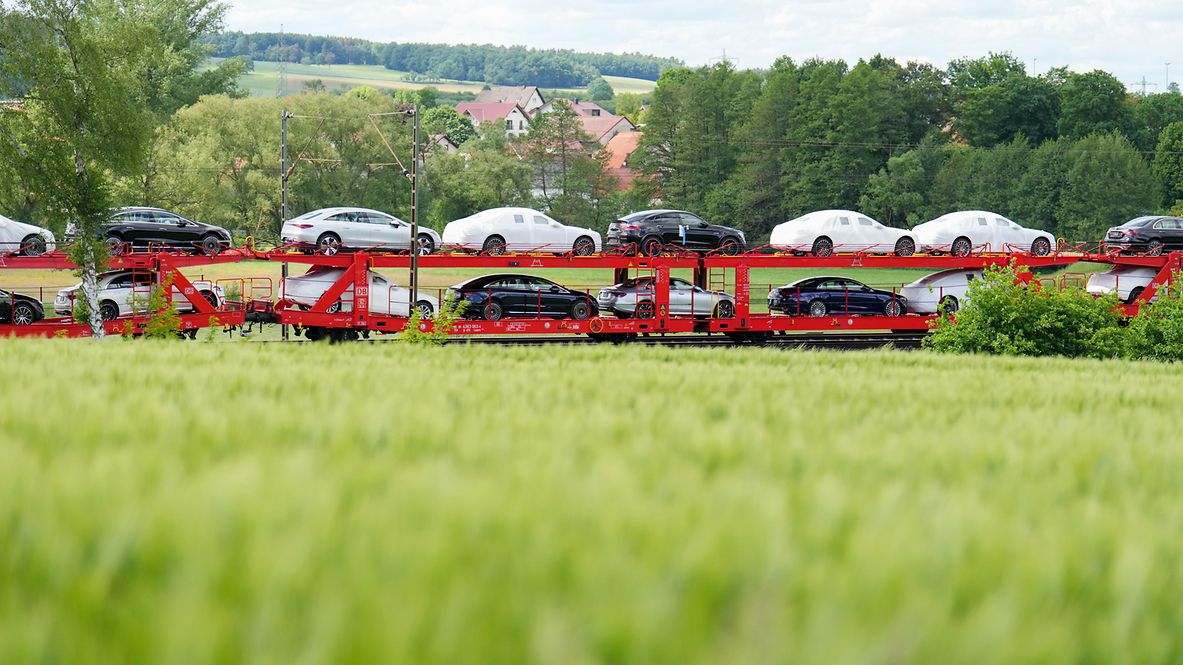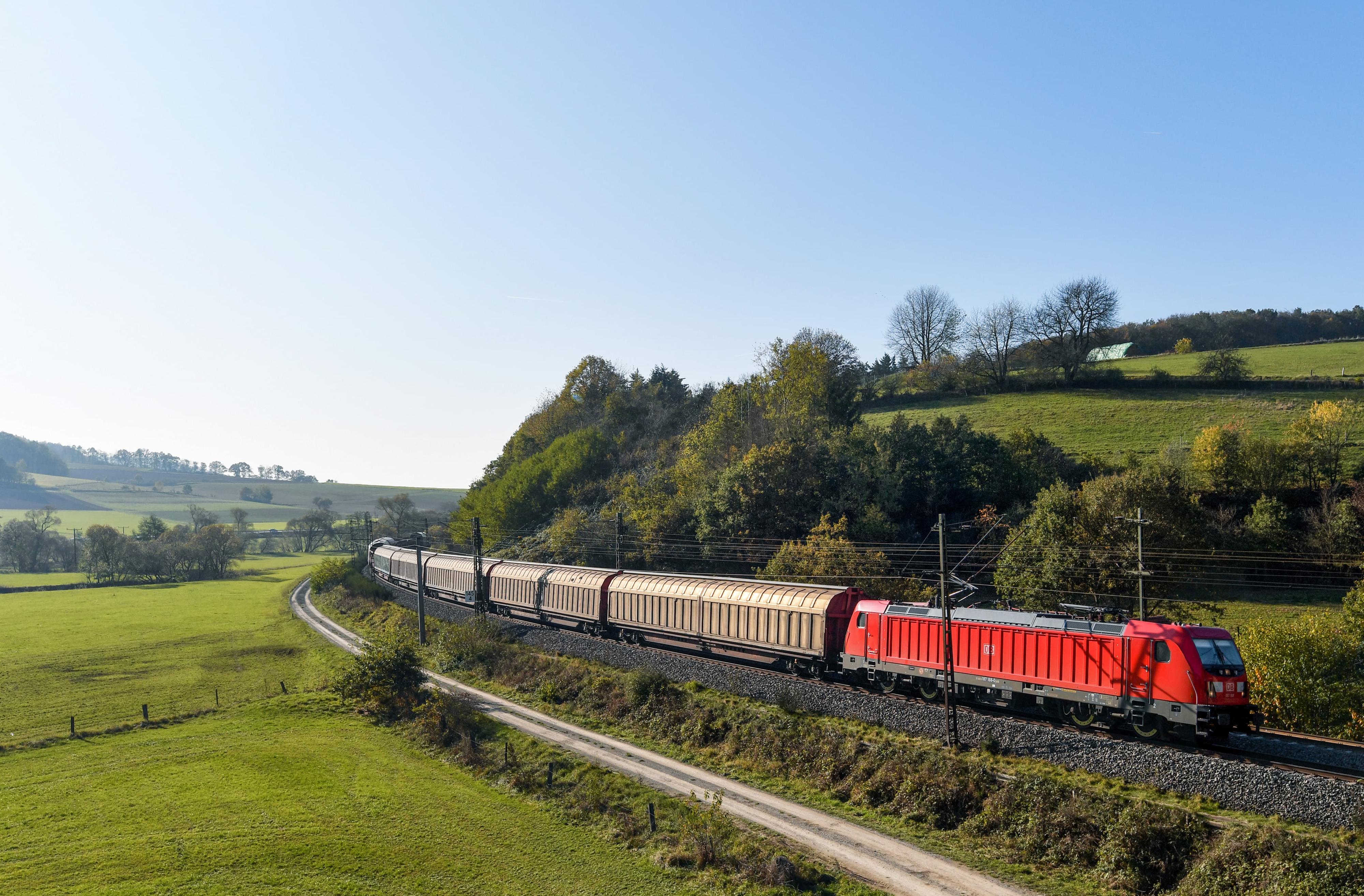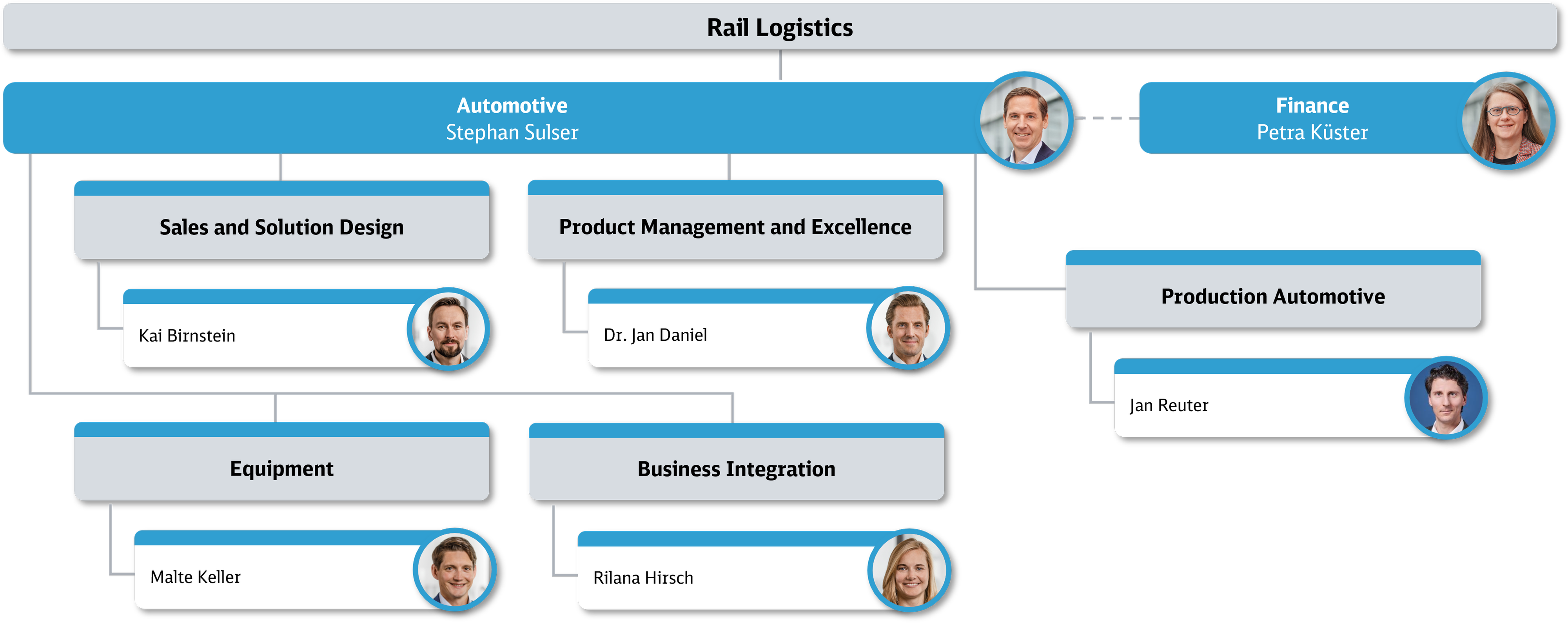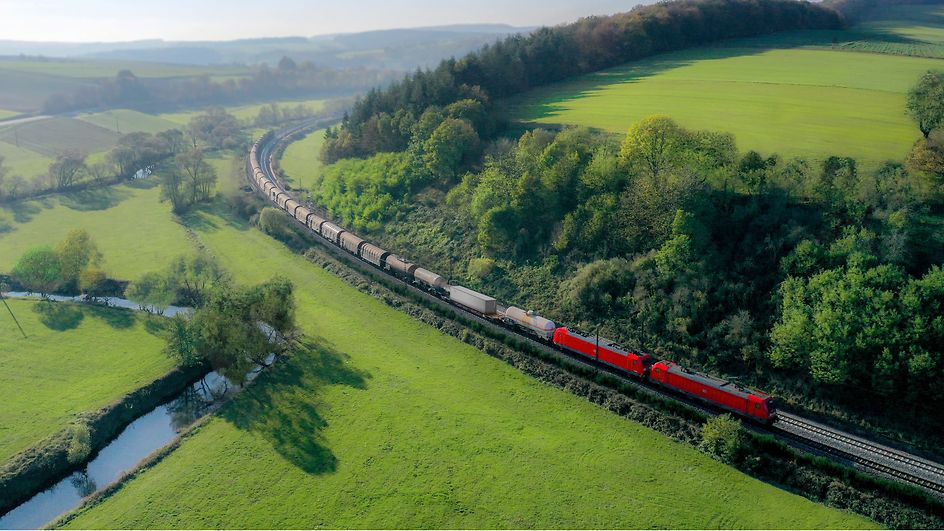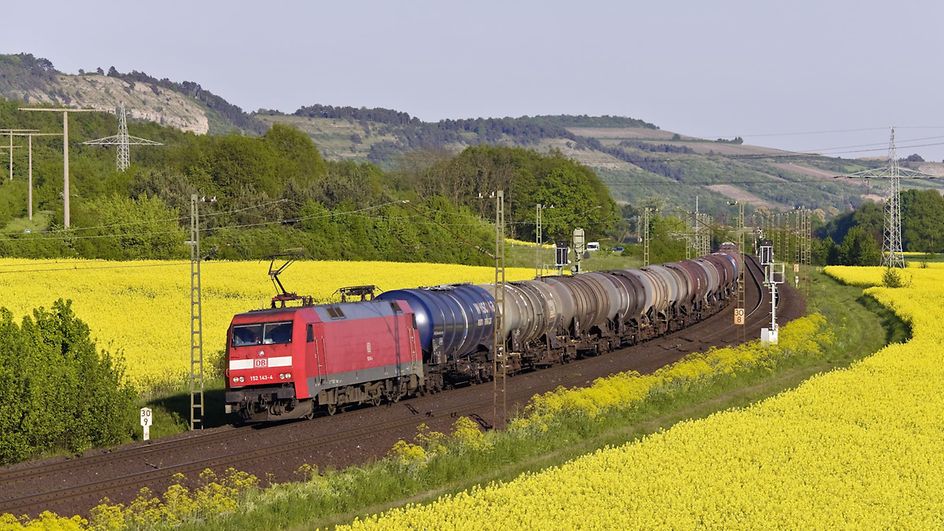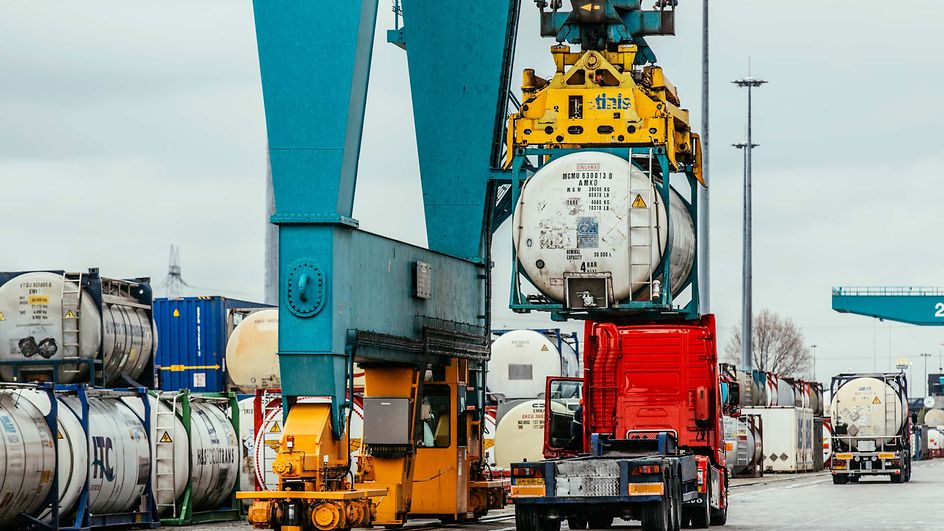Article: Automotive – The rail logistics provider for the automotive industry
The automotive industry in transition – DB Cargo delivers the right logistics
The automotive industry is undergoing a period of change characterized by new mobility concepts, complex supply chains and growing pressure for sustainability. DB Cargo is accompanying this change with its Automotive business segment, which focuses on specialized, high-performance rail logistics solutions for vehicle manufacturers (so-called OEMs – Original Equipment Manufacturers), OEMs and system partners.
Whether vehicle components such as batteries or complete vehicles – the services offered by the Automotive business segment range from block train and single wagon transports in the European network to multimodal concepts with additional logistics services and technical vehicle services. A particular strength: end-to-end door-to-door management across several modes of transport.
High-performance logistics solutions for the automotive industry
The Automotive business segment understands the high demands of the industry – whether just-in-time or just-in-sequence, the team enables reliable and precise logistics. In addition to classic rail transport, the business segment offers tailor-made solutions for handling, storage, technical services and sustainable transport concepts.
The aim is to actively shape the green transformation of the automotive industry with climate-friendly rail logistics – Europe-wide and future-oriented.
Facts, figures and data
DB Cargo Logistics GmbH as a sales unit and the automotive production at DB Cargo AG form the basis for this and work hand in hand in the Automotive business segment:
- Around 280 employees at four DB Cargo Logistics locations
- Around 300 employees in production throughout Germany
- Around 1.2 million finished vehicles transported per year
- Over 134,000 wagons with components per year
- Use of 7,700 freight cars and 90 locomotives
Automotive RailNet – the industry network by rail
With the Europe-wide Automotive RailNet, the business segment connects production facilities, OEMs, ports and distribution centers in the automotive industry.
The network is being continuously expanded – especially with regard to the growing requirements of electric mobility. In addition to traditional rail transportation, multimodal door-to-door solutions are also provided that are precisely tailored to the needs of the industry.
Management and strategic orientation
Stephan Sulser, Head of the Automotive business segment / Managing Director DB Cargo Logistics and Petra Küster, Managing Director Finance DB Cargo Logistics
Stephan Sulser, Head of the Automotive business segment and Managing Director of DB Cargo Logistics GmbH, has held various management positions at DB Cargo for over 20 years.
As Managing Director Finance, Petra Küster is responsible for the commercial side of the business.
Together with four specialized divisions and its own production unit, the team offers automotive system solutions in the European network and thus opens up new markets and new customers. The portfolio is being expanded and internationalized step by step – for example with a Europe-wide battery network.
Four teams and a dedicated production team work together in one direction: customer focus and innovation
The Automotive business segment is divided into four specialized teams and its own production department, which work closely together:
- Sales and Solution Design: Development and implementation of industry-specific rail logistics concepts, strategic customer support and market development.
- Product Management and Excellence: Management of the automotive network as lead logistics provider, timetable and capacity management, procurement of rail services, development of digital customer solutions and continuous process improvement.
- Equipment: Development of the fleet strategy for freight cars and locomotives, including new equipment solutions, inventory management and efficient deployment control.
- Business Integration: Strategic development, communication, market positioning and management of product development and implementation processes.
- Production Automotive: Planning and scheduling of production resources such as locomotives and train drivers in the Europe-wide transport network.
